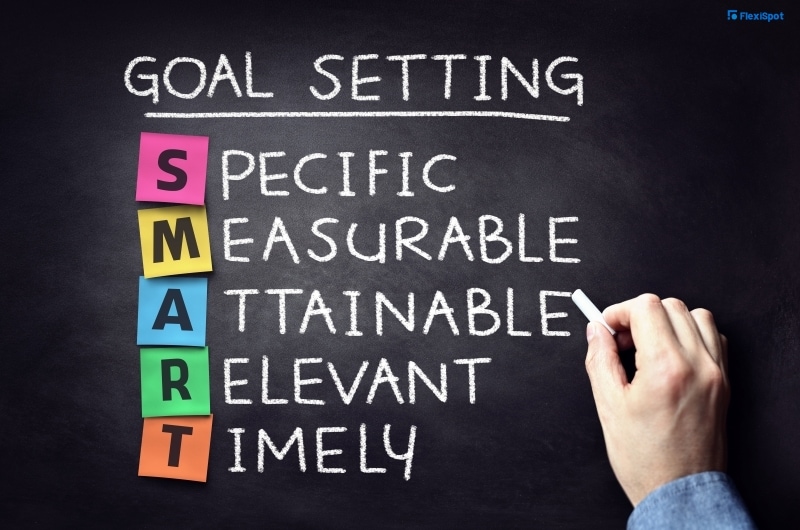No workplace is perfect. Even if your profits are driving up and you receive outstanding positive feedback from everyone you know, it doesn’t mean there is no room for improvement. As they say, you stop succeeding when you stop trying to do better. You can ensure the sustainability of growth and a fulfilling career if you regularly assess different areas where your team and yourself could improve. There are many things you could look at to review performance that will ultimately help the company for the better.
For a better quality of life, one that is healthy and happy, improving professionally in your career or being satisfied with your job is a must. If you are a superior, you become fulfilled with your leadership and management of your team by getting both positive and constructive feedback. If you are a regular employee, you improve your work performance by assessing it yourself as well as getting evaluations from your bosses. This paves the way for career advancement and opens opportunities to acquire new duties and roles at work. They are also able to fulfill and tick off career goals.
Performance is always beneficial to both employee and employer. It will generate more profit, produce quality outputs, improve employee retention and save valuable resources for the company. It may also result in salary raises and incentives for employees.
So what should be looked at when evaluating performance? Which areas must be assessed that would need further improvement? We list some of them below to hopefully give you a guide on an effective performance review.

1. Management of time
When employees are able to manage their time wisely, they not only submit their outputs on time, they also ensure it’s of the best quality. They work efficiently and produce quality work in the least amount of time, even during the most stressful of times. Plus, when you are able to manage your time, you cut off the work stress by a mile.
Good time management is achievable by writing down detailed to-do lists every day and committing to finishing all of them, or at least, the most prioritized. You could assess if you have good time management by keeping a record of how your hours are spent at work and if the time given meets your daily goals.
2. Communication
Misunderstandings, conflict, or inefficient work are often caused by lack of or poor communication. There are many ways to communicate including through written word, verbal encounters, or through nonverbal cues. When you are able to communicate well, you become much more productive and organized as is everyone you are working with.
Be a good listener, look people in the eye, and really pay attention to what they are saying instead of crafting a response while they’re talking. Communication styles must be adjusted according to the people you are talking to.

3. Organization
Being organized does not only equate to being neat and tidy. Of course, that applies too but the organization also encompasses the ability to compartmentalize your thoughts and tasks in order to boost productivity and sharpen focus. You will most likely get a lot of tasks done because your organized mind deals with low-stress levels.
Clean your work environment to declutter and create a schedule of things that you have to do, from an order of the most important to the least.
Use digital files to ensure that you have multiple copies of your so-called receipts. You could also put organization systems in place to ensure work-life balance as well as completion of tasks before a vacation. Systems will help your documents to be accessible and available at most times of the day.
4. Teamwork
No man is an island. In sports, business, and everything in life, teamwork matters. You can’t do everything on your own and you would need other people’s help to live the life that you are a dream to have. At work, a department or team that is able to exercise good teamwork could solve problems more quickly and are often more efficient in finishing tasks. You also get to hear different perspectives, especially during ideation. Each member has a specific skill, knowledge, or value to offer to the table.

5. Problem solving
To become an effective problem solver, you must be able to pinpoint the root cause of each problem. When you know what is causing the problem, that’s when you can list down all the options to solve it right away. From the many options, you pick and select what is best before you slowly implement it. This skill also helps manage conflict at work, work with consistent motivation, and a clear end goal to move forward.
A proactive employee will take note of how a certain situation was solved so when a problem of similar nature arises, it is much easier to solve it now for a better response.
6. Customer service
They don’t just say the “Customer is always right” with no reason at all. What the customer says matters, and whether or not he or she is satisfied with the service, determines if they will keep supporting the company and spreading the word out about it to their friends. Customer service skills also help when dealing with your colleagues—you are reliable and able to answer their queries about your task. You could also offer help to them without of course taking the brunt of their jobs.

7. Goal-Setting
Most superiors call their employees to know what their goals are during their stay in the company. When employees are goal-oriented, they have more energy to stay motivated, focused, and efficient.
A goal must be SMART—specific, measurable, attainable, relevant, and timebound. You can tick off one goal after another if you follow timelines for your goals. You need to meet the deadlines that you set. If you aren’t able to and just end up getting frustrated, then find the root cause of the problem and how to address it. Challenge yourself to meet a big goal that you have today.
8. Flexibility
It’s important to have a set of rules but do not be so rigid about it. Your team members will be trained to be adaptable to change, even when they are working on different responsibilities.
So you want to learn? You have to explicitly show your interest to accept projects, learn how to bike, and deliver quality work outputs. You could also practice being calm especially when the plans change all of a sudden.
There are many ways to improve your work performance, some areas you need a lot of improvement, some are your strengths. These skills barely scratch the surface. You also have to look at an employee’s ability to listen, empathize, and respond even when under pressure. Transparency is also an area where anyone could be more so that accountability is checked.
Once you’ve seen significant improvements, you can always incentivize workers by giving bonuses to the most deserving or investing in tools that will give them comfort while working; for example, ergonomic furniture.
